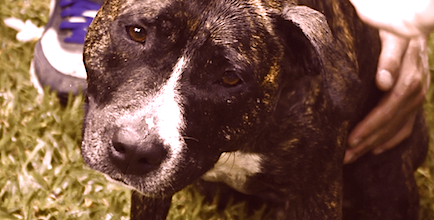Basenji Breed Profile: Essential Facts
Known as the barkless dog, the basenji makes more of a yodel sound. Silence doesn’t mean sedate, though.
American foxhound

Don’t leave your pet’s safety to chance
Sign up for Petful recall alerts today.

Origin of the Basenji
Depictions of the basenji appear in ancient Egypt, and they are considered one of the oldest breeds of dog. Ancient artifacts show dogs resembling the basenji alongside pharaohs, highlighting their long-standing role as companions and hunting aids.
The breed was later maintained in Central Africa, where their keen senses and hunting abilities were highly valued by local tribes.
- Initial transport to England and America faced challenges due to distemper outbreaks, resulting in major losses.
- Second attempts for exportation and breeding proved successful.
- The basenji breed was officially established in 1937 in England and in 1941 in America.
According to the American Kennel Club (AKC), the basenji was formally recognized as a breed in 1944.
Purpose of the Basenji
The basenji was originally used for hunting, retrieving, and driving game across rough terrains in Africa. Their intelligence, agility, and sharp senses made them invaluable working dogs for local hunters.
Today, basenjis have adapted to a variety of roles, including:
- Hunting companions
- Family pets
- Competition show dogs
Additionally, basenjis participate in a range of activities such as agility, tracking, coursing, and obedience trials. They are recognized for their agility skills and often rank among the top dog breeds for agility.
Temperament of the Basenji
Basenjis are intelligent dogs and are typically easy to train, although early socialization is important because they can be wary of strangers. Their quick thinking and cleverness often surprise new owners.
- High intelligence that can sometimes lead to outsmarting their owners
- Affectionate yet independent personalities
- Frisky and alert behavior, requiring secure outdoor spaces since they are known to climb chain-link fences
A common misconception is that because the basenji does not bark, it is always calm and sedate. While some basenjis may be more laid-back, most are active and require:
- Regular exercise
- Mental stimulation
- Consistent training and socialization
Training based on positive reinforcement methods is highly recommended to manage their smart but sometimes mischievous nature.
Basenjis are usually best kept with other basenjis or dogs, as they may not always be trustworthy around other animal species.
We couldn’t mention a yodeling dog without letting you hear the yodel, now could we? Elvis was taken for a walk and missed by his fellow basenjis, as evidenced by their yodeling:
Is the Basenji the Right Dog for You?
Although they are known as quiet, barkless dogs, basenjis are very active and require daily exercise to stay healthy and happy. Their energy level means they thrive with regular outdoor outings, but they are also active indoors and can adapt well to apartment living or smaller homes if their exercise needs are met.
- They do well with small outdoor areas when provided with frequent walks or playtime.
- Basenjis tend to bond best with their own breed and are not always trustworthy around other animal species.
- They are intelligent, affectionate, and spirited companions that respond well to early training and socialization.
With the right environment, consistent training, and plenty of exercise, a basenji can become a loyal and treasured member of your family.
Exercise Needs of the Basenji
HighHIGH: The basenji is an active dog that requires long daily walks and additional playtime whenever possible. Regular exercise is crucial not only for their physical health but also for their mental well-being.
- Long daily walks to burn off energy
- Extra play sessions, such as fetch or agility games
- Opportunities to run safely in a secure, enclosed area
Without sufficient activity, basenjis may become bored, leading to laziness or destructive behavior around the home. Consistent exercise also helps maintain a healthy weight and supports their alert, lively temperament.
Grooming Requirements
LowLOW: The basenji has a short coat that requires very little maintenance. Much like cats, these dogs groom themselves regularly and do not shed excessively, making them a relatively low-maintenance breed for grooming needs.
Important grooming tips for the basenji include:
- Bathing is rarely needed, as they are notorious for disliking water and typically lack the “doggie” odor common with other breeds.
- They are often considered a good choice for people with allergies due to their minimal shedding.
- Clip their nails regularly using safe nail trimming tools.
- Clean their teeth and ears routinely to prevent health issues, as explained in this guide on why dental care is important.
Maintaining these simple grooming habits will help keep a basenji healthy and comfortable.
Common Health Problems in the Basenji
MediumMEDIUM: The basenji is generally a healthy breed, but like all dogs, it is prone to certain health issues. Without regular exercise, a basenji may become lethargic and overweight, which can lead to additional complications.
Some common health problems seen in the basenji include:
- Kidney issues, specifically Fanconi syndrome, a genetic disorder affecting kidney function
- Eye problems such as progressive retinal atrophy
- Hypothyroidism (underactive thyroid gland)
- Hip dysplasia, a common joint problem described in this guide about hip dysplasia in dogs
- Intestinal issues that may impact digestion and overall health
Early diagnosis and regular veterinary care are essential to help manage and minimize these risks in basenjis.

Adopt, Don’t Buy
If you consider getting a basenji for your next pet, check rescues and adoption resources first. Even purebred animals can end up in shelters. Try Petful’s adoptable pet finder.
Related Dog Breed Profiles You May Like
- Bouvier des Flandres Breed Profile: Essential Facts
- Cane Corso Breed Profile: Essential Facts
- Leonberger Breed Profile: Essential Facts
- Lowchen Breed Profile: Essential Facts
- Otterhound Breed Profile: Essential Facts
Frequently Asked Questions (FAQ)
How does a basenji dog bark when excited?
A basenji does not bark like typical dogs but may produce yodel-like sounds, known as a “barroo,” when excited.
How old is the basenji breed?
The basenji breed is estimated to be thousands of years old, with origins dating back to ancient Egypt.
Are basenjis hypoallergenic?
Basenjis are often considered hypoallergenic because they shed very little and groom themselves like cats.
What is a basenji dog?
A basenji is an ancient, small to medium-sized hunting dog known for its intelligence, independence, and barkless nature.








